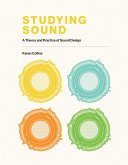This study focuses on a continued evaluation and integration of Schenker's work, specifically the role of his ever-deepening understanding of counterpoint in musicalistic structures, both horizontal (melodic) and vertical ('chordal'). It reformulates the role of this understanding in discerning the atomic, primitive elements of an abstract human species-specific, cognitive-computational process. We conjecture that the fundamental technical concepts of counterpoint plausibly form the basis of natural musical logic and coherence and somehow reflect the basis of a representing system for a generative capacity evidenced in the creation and interpretation of musicalistic expressions.
It is plausible to assume that a thorough investigation of the musical generating principles of consonance and dissonance, as developed through the technical perspective of species counterpoint, can lead to surprising insights necessary for the formulation of a general theory of music. Music, like language, is obviously an extremely complex system. Music theory must simplify this complexity and endeavour to discover its primitive elements which can be used to develop a systematic representation of levels that contributes to greater descriptive and explanatory salience of musicalistic structure.
It is plausible to assume that a thorough investigation of the musical generating principles of consonance and dissonance, as developed through the technical perspective of species counterpoint, can lead to surprising insights necessary for the formulation of a general theory of music. Music, like language, is obviously an extremely complex system. Music theory must simplify this complexity and endeavour to discover its primitive elements which can be used to develop a systematic representation of levels that contributes to greater descriptive and explanatory salience of musicalistic structure.
Dieser Download kann aus rechtlichen Gründen nur mit Rechnungsadresse in A, D ausgeliefert werden.









